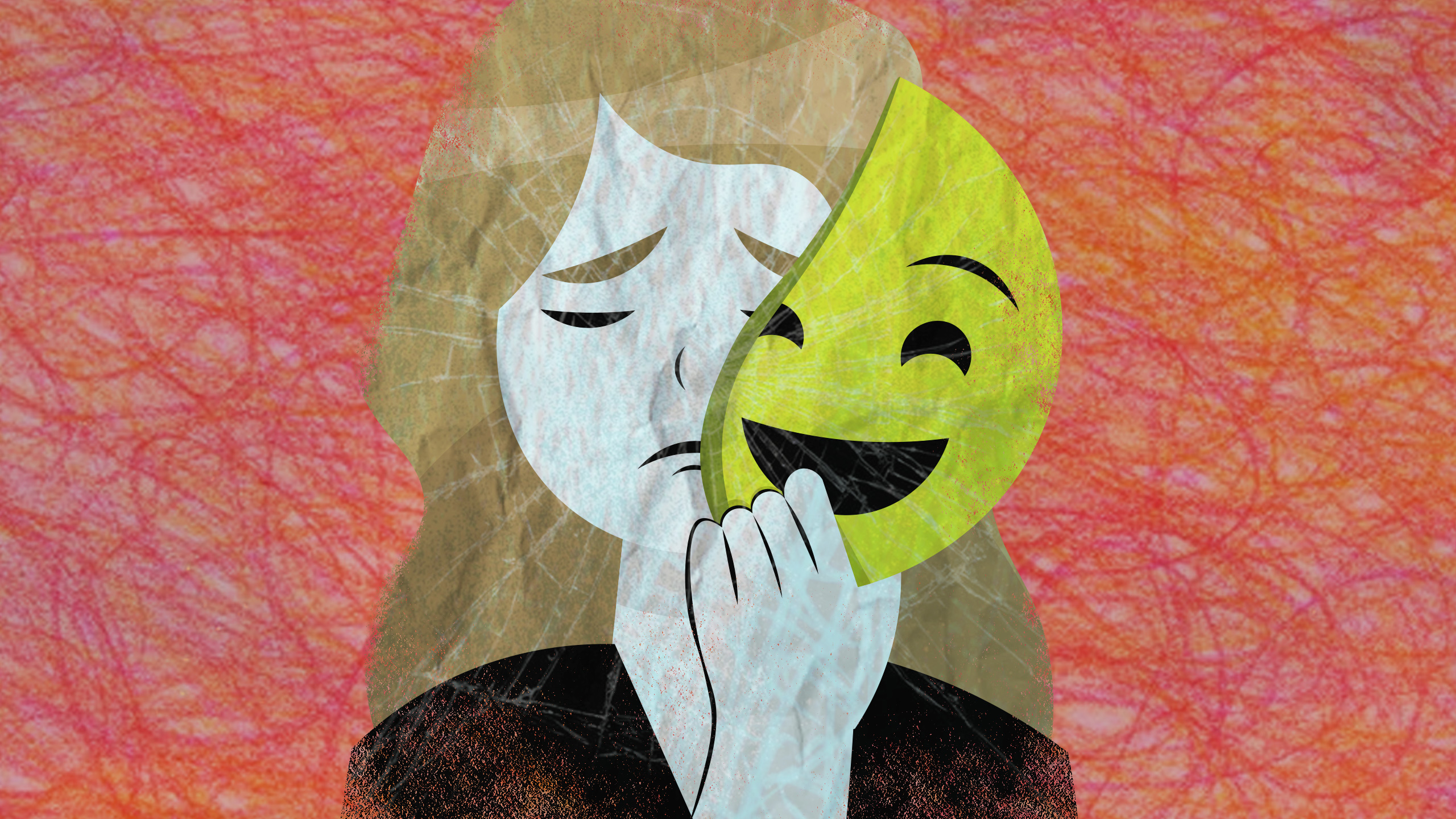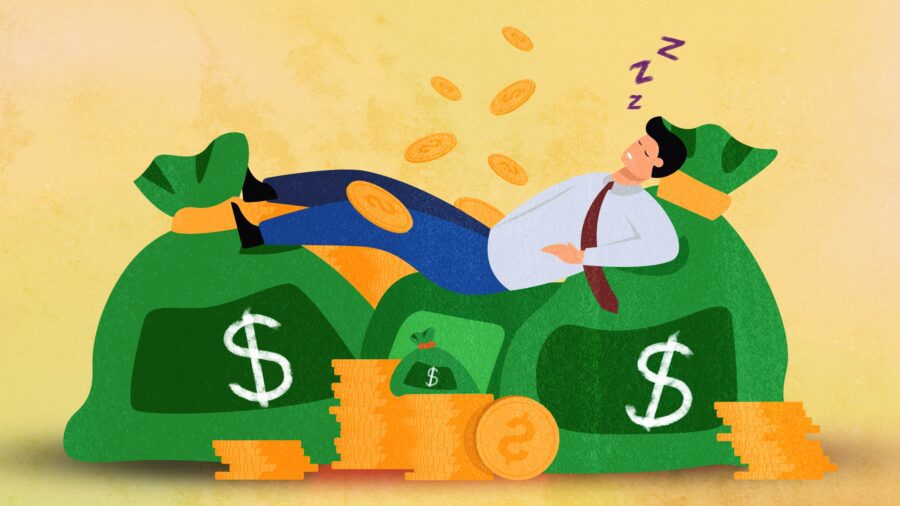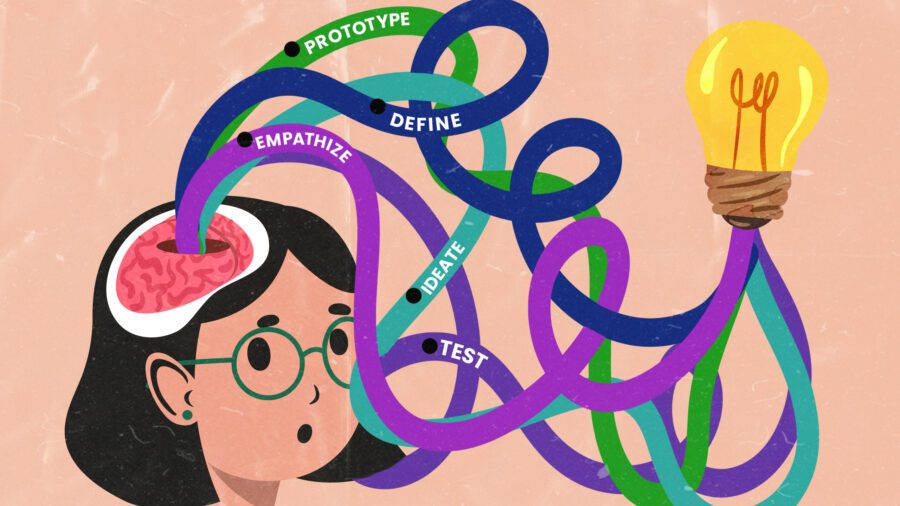
15 Signs You’re a Chronic People Pleaser (And How to Let Go of Expectations for a More Confident Life!)
Are you a people pleaser?
If so, you may find you struggle with setting boundaries, prioritizing yourself, and being assertive overall. People-pleasing is pretty common, and we all have people-pleasing traits to some degree. After all, we’re social creatures, and being accepted is an innate human need.
Those who have deeply entrenched people-pleasing habits tend to have picked them up in childhood. These habits often appear in an unstable home, around volatile parents or peers, or simply as a result of their upbringing, since many cultures place a high importance on kids being compliant and agreeable.
That said, people-pleasing gets toxic quickly and leads to lowered self-esteem, disrespectful behavior from others, imbalanced relationships, and burnout. If you suspect you’re a people pleaser, it’s important that you take steps towards being more assertive, confident, and able to put yourself first.
In this article, you’ll learn why you need to make yourself a priority, accept yourself, and stop making excuses for the bad behavior of those around you. You deserve as much as you give others, and yes, it’s possible to change!
#1: You Don’t Know How to Say No
The number one sign that you’re a people-pleaser is simple. If you struggle with setting boundaries to your own detriment, you have a classic sign of being overly accommodating.
Here’s one scenario, your colleague drops a giant project on your desk at the end of the day. You respond with, “No problem!” even though it means another late work night. Or perhaps, a friend calls again to complain all about her problems (she never asks how you are), and you let her go on and on, despite the fact that you were already wiped when she called.
If you struggle with boundaries, you may rationalize away your own discomfort in order to accommodate another. While that might work at first, over time, you may find yourself saddled with burdens you don’t need and could have avoided.
#2: You Carry Resentment Towards People Who Don’t Put the Same Level of Care into You As You Do Them
As you can imagine, having no boundaries and suppressing your needs can really take a toll on you. If you struggle to say no, or if you tend to take on too much responsibility for or in comparison to other people, sooner or later, you’re going to feel burnt out, angry, and resentful. It’s a natural response to carrying more than your share in a relationship.
If you’re a chronic people pleaser, you may be so used to stuffing down your own wants and needs you may not even know they’re not being met. But then, one day, you snap. Carrying anger and resentment can be toxic and results in uncomfortable or awkward social situations. If you find yourself in cycles of stuffing things down and then snapping, you’re likely a people pleaser.
#3: You Have Difficulty Standing Up for Yourself
Related to having no boundaries, people-pleasers often put themselves last to their own detriment. This might mean letting someone bully you into a decision you don’t want, or you may accept bad behavior from others.
It’s never fun to be treated like a doormat, and it can really lower your self-esteem. Yet for those whose people-pleasing began in unhealthy childhood home dynamics, the fear of standing up for yourself has very real, very valid origins. Unfortunately, those who struggle with being assertive are often cast as weak or flawed in some way. This couldn’t be further from the truth.
If standing up for yourself is hard, reflect on why that might be and seek mental health support if needed.
#4: It’s Hard for You to Speak Your Truth
Related to standing up for yourself is speaking your truth. Sometimes we have things to say that other people might not respond to so well. Maybe in order to honor ourselves — our needs, our feelings, our boundaries — we have to speak up about something, like telling our partner that we don’t like them flirting with other people or telling our parents that we don’t appreciate being asked when we’re having kids.
Some people seem to have no problem at all broadcasting what they feel, think, or need. But people-pleasers are acutely aware of other people’s reactions. They may be highly empathic, sensitive souls who can read other people’s energies and emotions more than most. That means they can feel other people’s reactions to what they say and may suppress what they say because feeling other people’s discomfort is uncomfortable to them.
Unfortunately, this leads to holding back from sharing important information and a feeling of being invisible, unseen, or unheard.
#5: You’re Driven by a Need for Acceptance
At the core of people-pleasing is a need for acceptance. People-pleasers want to be liked. So they may engage with life in a way that’s largely driven by other people’s reactions.
For example, they may choose a career based on what their peers value, pursue a form of art that’s not true to them because they want their art to be accepted by more people, or marry someone they don’t really love because it makes them look good.
It’s important to understand that we’re all driven by a need for acceptance in some form. As social creatures, we thrive on interconnectedness, and that includes being accepted — another way of saying loved — by others. That said, some people take this to a whole new level where they feel constantly concerned with whether they’re being accepted or not. They may feel deeply hurt when they’re not. When this reaches unhealthy levels, it’s important to get support around people-pleasing.
#6: You Place More Importance on Other People’s Opinions of You Than Your Own
Related to the need for acceptance, people-pleasers may end up valuing other people’s opinions more than their own.
Suppose they’re a musical artist, and someone doesn’t like the music they put out. They take those opinions on and feel bad about their work. Or maybe they’re quick to go along with the ideas and suggestions of their partner or friends instead of being true to their own. Perhaps they’re not even sure of their own opinions, or if they are, they feel insecure about expressing them. This is a sign they need to do some inner work on both self-awareness (of what’s true for them) and self-worth.
#7: You’re Quick to Shift Your Plans and Schedules to Accommodate Others
Many people-pleasing habits are knee-jerk reactions that seem deeply ingrained and unconscious.
For example, let’s say you have a friend who calls to reschedule last minute again, and you automatically let them off the hook even though it was kind of rude, if you’re honest with yourself. You assure them it’s no problem and cheerfully go along with their suggestion to connect another day, even though that means you won’t make it to your favorite yoga class.
All of this has been pretty inconvenient and annoying, yet you seem more than happy to accommodate.
If this is you, know that many behavioral patterns are simply that — patterns. Sometimes even when you’ve set out to change your people-pleasing ways, the habit is hard to break. Be gentle with yourself as you recognize and start to shift your overly accommodating nature.
#8: You Apologize a Lot
Just like being accommodating, apologizing is a knee-jerk habit that can be hard to break. Some people apologize because of a persistent feeling or anxiety around others that they’ve done something wrong. Other times, they know they made a mistake that affected another person, and they hold themselves overly accountable and won’t let themselves off the hook.
Being overly apologetic often has its roots in childhood. Maybe your culture expected kids to be highly compliant with their parent’s wishes. Perhaps you had a parent who said children are to be seen and not heard. If you had unhealthy home dynamics or experienced bullying (which is incredibly common), you might have a habit of apologizing to keep the peace with other people.
Join In 200 Million+ On The Journey to Greatness
#9: It’s Hard for You to Accept When Someone Is Angry at You
People pleasers have a hard time disappointing or frustrating others. It can be uncomfortable and even distressing to know that someone is angry with you. But the maxim, You can’t please everyone, is so true. Trying to avoid stepping on anyone’s toes is trying to achieve the impossible. Plenty of people pleasers do attempt to achieve this impossible task, at the expense of their own health and sanity.
If you struggle with this, you may end up putting yourself last often — doing things you don’t want to do, taking on work you don’t need, whether it’s emotional work for your partner or chores around the house — simply because you’re trying to prevent the other person from being angry with you.
#10: You’re Out of Touch with Your Feelings
If you’re a chronic people pleaser, you’ve had to stuff a lot of feelings down over a long period of time. You may do it automatically and quite unconsciously. This isn’t your fault. Again, many people-pleasing habits come from our past, where we didn’t necessarily have a choice to be authentic around others.
You will know you’re out of touch with your feelings when people leave your life and you have an identity crisis. You may have spent most of your time responding to other people’s feelings rather than understanding and acknowledging your own. This means when those outside influences are gone, you feel a sense of emptiness. You might also have trouble making decisions or knowing which direction to go in life since you don’t have that all-important emotional awareness to show you what direction is best for you.
#11: You Frequently Overextend Yourself
People pleasers often go out of their way to help others and end up burning out as a result. Sometimes they can feel it happening (they know they should set some boundaries with their kid, but go against their own wisdom). Other times they don’t realize it until it’s already too late. They might get involved in a tricky situation they should have avoided, like being a confidant for their nosy neighbor who has nothing to talk about but complaints.
Overextending, they find themselves mentally, physically, or emotionally worn out and wishing they’d set boundaries earlier.
#12: You Shrug Off Bad Behavior from Others
People-pleasing turns into toxic territory when you allow other people to treat you without respect.
This is a recipe for diminished self-worth and feelings of inadequacy. At worst, it leads to abusive or disempowering relationships. If preserving a connection or keeping someone in your life takes precedence over being treated with dignity and compassion, you should definitely seek support for people-pleasing.
#13: You’re Addicted to Fixing People
Sometimes, people pleasers grew up in homes where other people were unstable or had a lot of problems. That’s where they learned to read other people and accommodate them — it was an act of self-preservation.
If that’s you, you may have developed a sense of control and self-worth by helping other people. Perhaps you took on the role of caretaker, therapist, confidant, or helper. Being in that position was when you felt best about yourself and the most in control. This may have carried into adulthood and resulted in a pattern of rescuing other people, even if it meant helping them evade taking responsibility for their actions.
Often called codependency, this is a sign that therapy would help you find healthier ways of relating to people.
#14: Taking Care of Yourself Feels Selfish
When you’re used to putting other people first, taking care of your own needs can feel selfish. When you’re used to being modest, tooting your own horn can feel arrogant.
As you can see, people pleasers may struggle at first to put their own needs first (as they should be doing). It may trigger uncomfortable feelings, low self-worth, fears about how people will react, or simply make them feel anxious. Feeling guilty when you put yourself first is a big sign that you’re a people pleaser, yet it does get easier with time, so keep going.
#15: You Struggle with Self-Worth
Last but definitely not least, low self-worth is arguably at the core of all people-pleasing. When you feel strong in who you are, accepting of yourself, flaws and all, and deeply value yourself, you will be less inclined to be people-pleasing. If you have a lot of negative self-talk, tend to be very hard on yourself, and treat yourself without respect, you have a core aspect of people-pleasing.
If this is you, know that you’re far from alone. There are countless techniques, modalities, and books designed to improve self-worth because there are countless people who need them!
Here are just a few tools you might use:
- Emotional Freedom Technique (EFT)
- Chakra Healing Meditation
- Confidence Boosting Affirmations
- Color Psychology and Confidence
With a positive attitude and committed practice, you can boost your confidence in no time.
How to Stop People-Pleasing
As we’ve discussed, people-pleasing can be the result of negative experiences in childhood (like bullying, emotional neglect, or abuse), a repressive cultural environment (including the school system), or even demoralizing experiences as an adult.
The first step in breaking the people-pleasing habit is becoming aware of where the behavior came from. This might include journaling, meditation, therapy, coaching, or trying out other psycho-spiritual practices.
Building self-worth is essential if you’re trying to overcome people-pleasing. You can use affirmations (doing them in front of the mirror is most effective), try visualization and hypnosis, or work on your confidence in any number of ways.
A big part of overcoming people-pleasing will involve learning to tolerate uncomfortable sensations like anxiety when you know someone is mad at you. You’ll also have to break knee-jerk habits, like apologizing or rearranging your life for someone else. This takes mindfulness and slowing down, being aware of your habits and new ways to speak, think, or act that better serve you.
If you’re prone to being codependent, remember that you can’t help anyone else if you don’t help yourself. You may love healing and helping others, but you must put your oxygen mask on first.
You Can Stop People-Pleasing
People-pleasing is a habit that won’t do you any favors. While common, it leads to alienation from the self, feelings of resentment, and overextension to the detriment of your health, peace, and sanity. It often has its origins in childhood, though certain cultural conditions (like gender bias) can also contribute to someone being prone to people-pleasing.
While it may be an ingrained way of living, people-pleasing is a habit, and one that can be overcome. Learn to tolerate being unliked and to stand up for yourself, and you will be well on your way to a more healthy way of relating to people.
Greatness Authors
Greatness Authors is a collection of writers, thinkers, curiosity experts, and students of the world who are committed to bringing you the most up-to-date, impactful, and inspiring information surrounding Greatness topics.

Redefining Poetry: How Instagram Sensation Rupi Kaur Showed That Poetry Is for Everyone

The Young Professional’s Guide to Advocating for Yourself at Work & Setting Healthy Boundaries

Olympian Yusra Mardini’s Incredible Story of Resilience, Rescue, and Refugee Rights

A Beginner’s Guide to Effortlessly Attracting Money and Growth Opportunities

Psychologist Edith Eger’s Inspirational Journey to Find Forgiveness and What It Means for You










